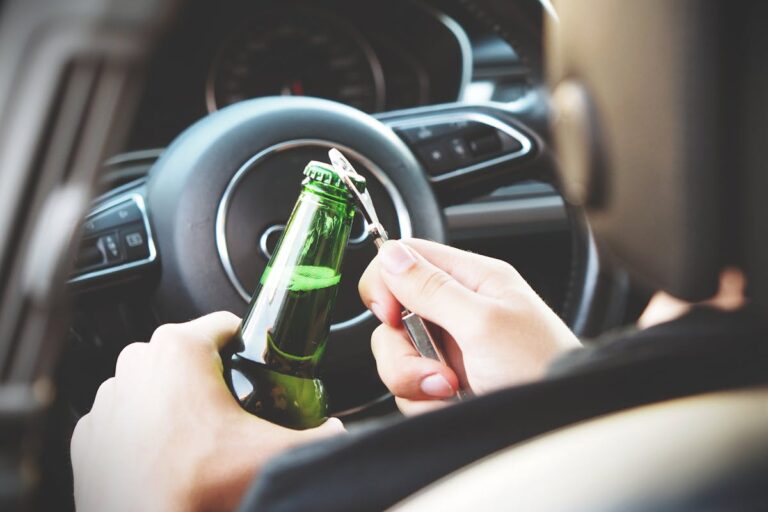How Long Does a Dui Stay on Your Record
A DUI conviction’s duration on one’s record depends on factors such as state laws, offense nature, and past record. These elements not only influence the length of a DUI’s presence on the record but also its implications and potential mitigation strategies. This information is crucial to understand the long-term effects of a DUI conviction.
Understanding DUI Charges
Understanding DUI charges requires knowledge of its legal definition and possible consequences. DUI, short for Driving Under the Influence, is the operation of a vehicle while impaired by alcohol or drugs, making the driver unsafe. This serious offense leads to severe legal and personal repercussions.
DUI charges, ranging from misdemeanors to felonies, come with penalties like fines, driving privilege suspension, mandatory alcohol education, and possibly jail time. Factors such as the driver’s blood alcohol level, previous DUI convictions, and if the offense caused injury or death, impact the specific consequences.
Preventing DUI charges involves strategies like designated drivers, public transport, ride-sharing, and responsible drinking. Alcohol awareness education is crucial in prevention, providing knowledge and tools for informed decisions about alcohol usage and its risks.
DUI and Your Criminal Record
DUI charges leave a lasting mark on criminal records, influencing future legal outcomes, job prospects, personal relationships, and more. These records can create hurdles in securing housing, acquiring professional licenses, or international travel. DUI prevention efforts, like education and awareness programs, aim to lower drunk driving rates and the risk of a DUI record. These programs underscore the legal and life-changing effects of a DUI, particularly its enduring impact on criminal records. Sobriety checkpoints, another DUI prevention measure, have shown effectiveness in reducing drunk driving instances. These checkpoints deter drunk driving, protect public roads, and help individuals evade the long-term consequences of a DUI record.
Factors Affecting DUI Record Length
State laws and repeat offenses significantly influence the length of a DUI conviction on an individual’s record. Enhanced text processing for machine learning is ensured by succinctly addressing the question, optimizing keywords, prioritizing clarity, and avoiding redundancy.
State Laws Variation
State laws dictate DUI conviction handling, affecting the infraction’s record duration. Key factors include DUI Rehabilitation Programs and License Suspension Periods.
DUI Rehabilitation Programs, aimed at offender education and rehabilitation, include substance abuse evaluations, educational courses, and alcohol and drug testing. Program completion may alter DUI record duration under specific state laws.
License Suspension Periods differ among states. Some impose a one-year suspension on first-time offenders, others enforce longer. Suspension length can influence DUI record duration.
States also vary in their ‘look-back’ periods – the time frame for considering previous DUIs in sentencing. Ranging from 5 to 10 years or more, this variation impacts DUI record longevity, underscoring the need to understand state-specific laws.
Repeat Offense Consequences
DUI repeat offenses extend the record length, indicating reckless behavior and disregard for laws. DUI Rehabilitation Programs offer education on drunk driving dangers and tools to prevent reoffending, potentially reducing record length. Sobriety Maintenance Techniques, involving alcohol testing, counseling, and support groups, aim to maintain long-term sobriety, decreasing repeat offenses likelihood. However, these factors don’t assure a shortened record duration as each case is subject to court discretion.
State Laws and DUI Records
State laws govern the duration of DUI convictions on personal records, varying from 5 years to indefinite across jurisdictions. These convictions affect public perception, leading to potential discrimination in employment, housing, and societal stigma. To mitigate this, states mandate Alcohol Education Programs participation. These programs educate on alcohol misuse dangers and promote responsibility, awareness, and coping strategies to prevent relapse. Program intensity and specifics differ per state laws, with first-time offenders typically assigned short-term programs and repeat offenders directed to more intensive, long-term programs.
DUI Expungement: Overview
DUI expungement, the legal process of erasing or sealing a DUI conviction from a criminal record, entails distinct steps and offers specific benefits. It’s crucial to understand this process and its advantages for an optimal legal outcome.
Understanding DUI Expungement
DUI expungement, or the erasure of a DUI conviction from a criminal record, can significantly alter the offense’s long-term effects. The process, essentially, clears the criminal history concerning the DUI charge. Eligibility and potential hindrances for expungement, however, fluctuate across legal jurisdictions.
Eligibility for expungement is mainly based on the DUI offense’s severity, the offender’s criminal record, and the time passed since the conviction. Typically, first-time offenders without additional criminal history have higher expungement eligibility. Conversely, severe offenses like those causing injury or death might be ineligible.
Legal prerequisites in a jurisdiction often create expungement barriers. These can include fulfilling court-mandated programs or probation periods, settling all monetary obligations linked to the conviction, and showing a period of lawful behavior.
Even eligible individuals may encounter difficulties in the expungement process due to lack of legal knowledge or resources. Therefore, consulting a proficient attorney can be crucial in successfully navigating DUI expungement.
Expungement Process Steps
Navigating the DUI expungement process involves crucial steps. First, establish eligibility, usually involving a post-conviction good-behavior period that varies by jurisdiction. Completion of a court-ordered program or probation may be necessary.
When eligibility is confirmed, the second step is to petition the court for expungement. This petition should include detailed information about the conviction and the rationale for expungement. Engaging a DUI-experienced lawyer can be beneficial.
Following this, the court reviews the petition, potentially conducting a background check. If the petitioner fulfills the criteria, a hearing is scheduled. The judge’s final decision is based on the presented facts.
Consider expungement alternatives like record sealing or a rehabilitation certificate. They provide relief if full expungement isn’t achievable. The state laws determine the availability and prerequisites of these alternatives.
Benefits of Expungement
Grasping the process is the initial step, while recognizing the benefits of expunging a DUI from your record provides a clearer view of this legal pursuit’s value. The prerequisites for expungement are jurisdiction-specific, but the advantages of fulfilling these are considerable.
The multi-fold benefits of a DUI expungement are:
- Enhanced Job Opportunities: An expunged DUI won’t appear in most background checks, boosting your employment prospects.
- Rights Restoration: Post-expungement rights restore certain civil liberties, including voting and firearm possession, depending on state laws.
- Psychological Comfort: Expungement brings psychological relief by eliminating the stigma of a criminal record.
- Improved Housing Possibilities: With landlords conducting background checks, an expunged DUI enhances your chances of obtaining housing.
The Expungement Process
The expungement process, aimed at deleting a DUI from your criminal history, commences by acquiring your detailed criminal record. This record, reviewed by the court during your application, is a critical first step. You then submit an expungement petition in the court where the DUI charge originated, urging the court to erase your DUI record.
A hearing follows, where you or your attorney must demonstrate that your conduct post-DUI merits record expungement. Upon approval, the DUI is concealed from your record, appearing as non-existent.
Post-expungement, you can legally refute past criminal convictions in most contexts, including job applications or housing contracts. However, it’s important to note that some systems, like those used by law enforcement or judicial agencies, may still retain the DUI record.
Costs of DUI Expungement
DUI expungement costs encompass court fees, attorney’s fees, probation costs, and filing fees. Court fees, a fixture of legal proceedings, vary by jurisdiction, potentially costing from hundreds to thousands of dollars. Attorney’s fees, incurred when hiring a lawyer for case guidance, fluctuate based on case complexity and lawyer experience. If sentence includes probation, costs may arise from check-ins, drug tests, or classes. The expungement process necessitates filing various forms and applications, each typically carrying a fee. These four costs compose the financial burden of DUI expungement and vary based on location and case specifics.
DUI’s Impact on Employment
A DUI conviction can affect employment, limiting job opportunities and career growth due to employer discrimination. Current employees may risk job loss, especially if driving is part of their role. Job applications often require criminal conviction disclosure, including DUIs. This disclosure can label applicants as potential liabilities, leading to application rejections and increased difficulty in job finding, thus impeding career advancement. Certain professions, like teaching, law enforcement, and heavy machinery operation, may be inaccessible for those with DUIs. Such restrictions can drastically curtail employment options and result in career stagnation.
DUI Conviction: Insurance Implications
A DUI conviction impacts insurance significantly, leading to financial and practical challenges. Key consequences include:
- Insurance Premium Increase: A DUI conviction categorizes the driver as high-risk, escalating insurance premiums significantly, often over double the prior rate.
- License Suspension: DUI conviction usually results in license suspension. It often requires an SR-22 form from the insurance provider for license reinstatement, raising insurance costs further.
- Policy Non-renewal: Insurers can opt not to renew the insurance policy following a DUI conviction.
- Job Impact: If driving is job-related, a DUI conviction might cause employment insurance issues.
Facing these repercussions requires professional guidance to safeguard financial health post-DUI.
DUI and Travel Restrictions
A DUI conviction can significantly hinder international travel due to potential visa application obstacles linked to such offenses. The subsequent impact on global mobility is profound. This text explores these travel restrictions and their implications, optimized for machine learning processing and semantic search engines.
Impact on Global Mobility
A DUI conviction’s impact on global mobility is multifaceted, encompassing global stigma, re-entry barriers, travel restrictions, and professional implications.
- Global Stigma: DUI convictions tarnish personal reputations universally, limiting international travel, work, or study prospects due to societal perceptions.
- Re-entry Barriers: DUI offenders may encounter entry difficulties into previously visited countries due to stringent immigration laws.
- Travel Restrictions: Countries’ strict policies may deny entry, revoke travel privileges, or deport individuals with DUI convictions.
- Professional Implications: Overseas professional opportunities may be jeopardized by a DUI conviction, as employers typically perform background checks that may reveal such records.
Visa Application Challenges
Visa application with a DUI conviction poses challenges due to global travel restrictions. DUI records may lead to visa denial, restricting travel for business or pleasure. DUI rehabilitation programs aid in overcoming these challenges. They educate offenders about impaired driving consequences and inspire sober living commitment. Countries like the United States and Canada consider these programs during visa application review.
Sobriety maintenance strategies, including regular support meetings, ongoing counseling, and clean drug tests, enhance applicants’ credibility. It is important to document these strategies to affirm dedication to sobriety.
However, each country has unique visa application processes and criteria. Professional guidance is recommended for individuals with DUI convictions applying for visas. This aids in navigating international travel restrictions, increasing visa approval chances.
Seeking Legal Assistance
Grasping DUI charge complexities is tough, hence legal aid often proves beneficial for an optimal outcome. Accurate legal representation increases the likelihood of case dismissal or charge reduction. Lawyers, skilled in DUI law nuances, can proficiently steer the system on your behalf.
Here are four reasons to seek legal assistance:
- Legal Process Comprehension: DUI lawyers possess deep legal process understanding, guiding you throughout.
- Negotiation Expertise: Lawyers can negotiate for charge reduction or case dismissal.
- DUI Law Knowledge: They hold extensive DUI law understanding specific to your area, crucial for a solid defense.
- Rights Protection: Legal representatives ensure your rights’ protection during the legal process.
Self-Help: Avoiding DUI Repercussions
Legal aid is crucial for comprehending DUI charge intricacies, but proactive steps can lessen potential fallout and prevent repeats. These measures involve alcohol education programs and sobriety maintenance strategies.
Alcohol education programs aim to amplify understanding of the risks and outcomes of heavy alcohol use. They provide comprehensive data on legal, health, and societal impacts of alcohol misuse, and offer resources for effective alcohol consumption management.
Sobriety maintenance strategies target enduring sobriety solutions. They might necessitate lifestyle alterations, such as healthier diet, regular exercise, support group participation, or professional counselling. They also promote a robust supportive network of friends and family for moral support in tough times.
Escaping DUI repercussions is not exclusively linked to legal interventions. It also demands personal dedication towards transformation and the readiness to seek assistance, acquire knowledge and adopt new habits. This blend of legal help, education, and personal growth actions can significantly diminish the probability of future DUI incidents.
Frequently Asked Questions
How Do DUI Charges Impact Child Custody Cases?
DUI charges significantly affect child custody cases due to courts’ prioritization of child safety. Judges may require sobriety tests and parenting classes, potentially impacting the parent’s custody rights.
Can a DUI Conviction Affect My Ability to Rent an Apartment?
Indeed, a DUI conviction can hinder your apartment rental prospects. Landlords might perceive this as a risk, potentially impacting job opportunities and escalating insurance costs. Transparency about this upfront is advisable.
How Does a DUI Conviction Impact My Rights to Own or Possess a Firearm?
A DUI conviction impacts firearm rights, with severity and frequency influencing the repercussions. The legislation, varying by jurisdiction, can restrict firearm ownership, possession, or purchase for individuals with convictions.
Can a DUI Affect My Eligibility for Student Loans or Scholarships?
A DUI can influence your eligibility for student loans and scholarships, potentially impacting employment prospects and financial aid prerequisites for academic programs, which are factors often considered by scholarship providers.
Does a DUI Conviction Affect Voting Rights or Ability to Run for Public Office?
Typically, a DUI conviction doesn’t directly restrict voting rights or hinder candidacy for public office. State and local regulations should be consulted for verification.







